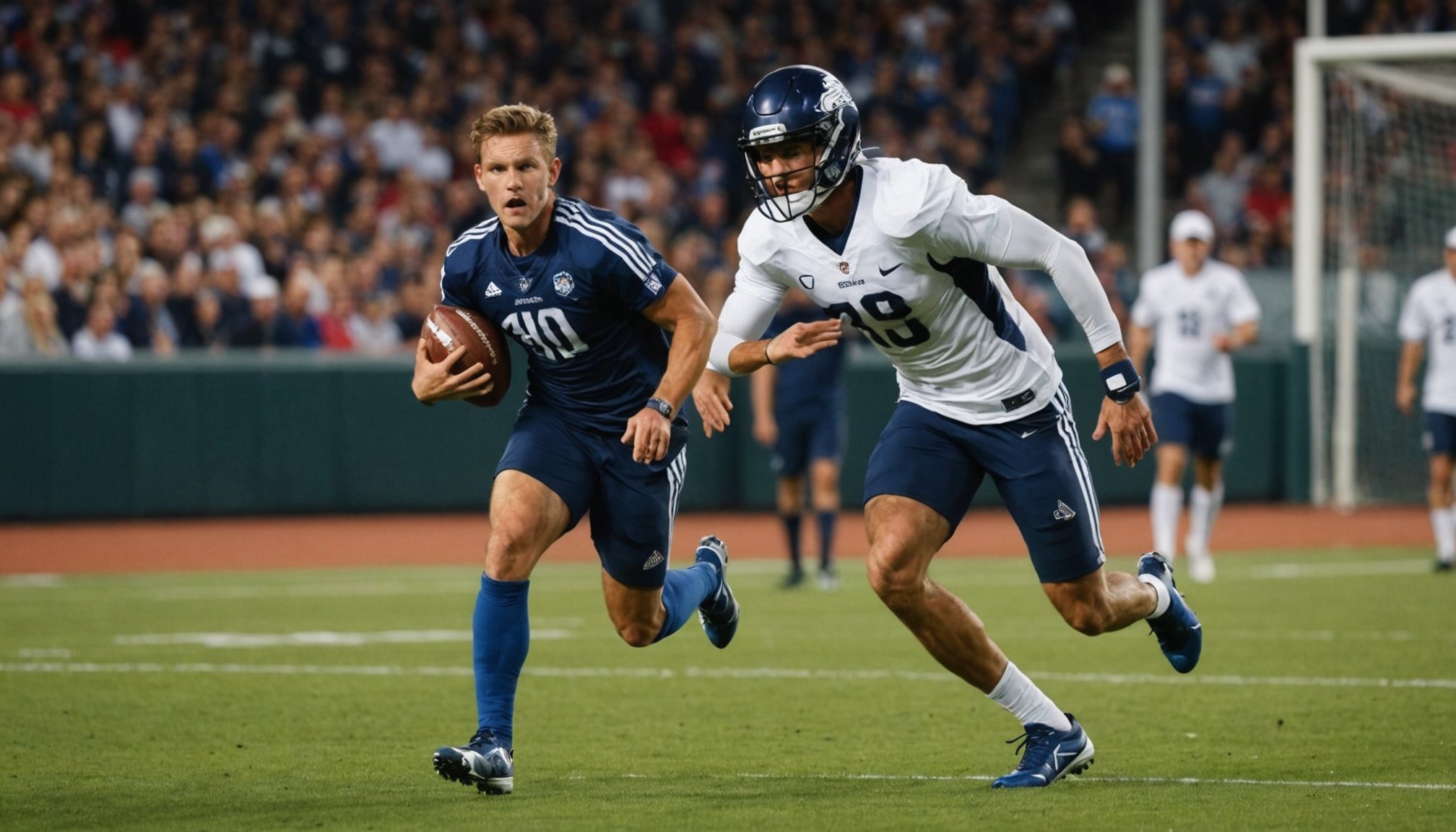Overview of Sports Psychology
Sports psychology is an interdisciplinary field dedicated to understanding how psychological factors impact athletic performance and how participation in sports can affect psychological well-being. The scope of sports psychology is broad, encompassing areas such as mental performance enhancement, emotional regulation, and athletic coaching strategies. Traditionally, athletic success was viewed mainly through a physical lens, but the field has evolved to recognize the psychological component as equally vital.
Historically, sports psychology emerged in the early 20th century, gaining significant traction around the mid-20th century as scientific methods began to be employed. Researchers started to systematically investigate how mental states affect performance and introduced structured mental conditioning practices. Today, sports psychology is integral in developing holistic training programs that cater to the mental and physical needs of athletes.
Also to discover : Unlocking Athletic Brilliance: How Genetic Profiling Tailors Training for Elite Performance
The importance of mental conditioning cannot be understated. Athletes trained in these methodologies often exhibit enhanced concentration, resilience, and adaptability, leading to improved performance. This reflects a growing recognition of mental strength as a key determinant in competition. Coaches and athletes alike increasingly integrate sports psychology into their routines to exploit these benefits fully, ensuring competitive edges are maintained or gained.
Understanding Fear of Failure in Athletes
The fear of failure is a significant psychological hurdle affecting many athletes. It often manifests as performance anxiety and can create noticeable mental barriers in training and competition. Athletes grappling with this fear may experience worry and a persistent dread of disappointing themselves or others. The intense pressure to perform well exacerbates this anxiety, leading to a cycle of stress and diminished performance.
Additional reading : Unlock Your Peak Performance: Discover How Continuous Heart Monitoring Reveals Overtraining Signals
Several factors trigger this performance anxiety. Common culprits include high expectations, critical evaluations from coaches or peers, and fear of letting down a team. These elements can lead athletes to doubt their abilities, producing a mental block that hampers their execution.
The repercussions of the fear of failure extend beyond mental struggles. Physically, it can result in tense muscles, reduced stamina, and erratic performance. Emotionally, it may dampen motivation and foster a negative self-image, affecting training effectiveness and overall competition outcomes. Addressing these fears through psychological strategies is critical for athletes aiming to reach their full potential. By overcoming these impediments, athletes can liberate their capabilities and enhance their performance across various platforms.
Techniques Used by Sports Psychologists
In the pursuit of enhancing athletic performance, sports psychologists employ an array of methods to bolster athletes’ mental capabilities and efficiency. These strategies are not just auxiliary but are central to refining athletes’ skills and outcomes.
Cognitive-Behavioral Approaches
Cognitive-behavioral techniques focus on modifying negative thought processes that impede performance. By identifying dysfunctional patterns, athletes learn to replace them with constructive thoughts that better serve their goals. These methods equip athletes with the tools necessary to overcome mental barriers and foster an empowering mindset.
Mindfulness and Relaxation Techniques
Mindfulness practices, including relaxation techniques, are vital in enhancing focus and reducing stress. Athletes are trained to be fully present, which aids in maintaining composure and clarity under pressure. Techniques such as deep breathing and progressive muscle relaxation promote calm and prepare the mind for peak performance.
Visualization and Mental Rehearsal
Employing visualization allows athletes to mentally rehearse success, which can significantly influence actual outcomes. By vividly imagining the execution of perfect performances, athletes reinforce neural pathways that contribute to improved skill and confidence. This mental rehearsal solidifies their capacity to excel when it matters most.
Real-World Examples of Overcoming Fear
Several athlete case studies illustrate how partnership with sports psychologists can transform fear into triumph. In these success stories, tailored mental coaching strategies led to breakthroughs in overcoming performance anxiety. Let’s explore a notable example and its outcomes.
One impactful testimony involves a renowned tennis player who struggled with debilitating competition anxiety, significantly affecting their performance. Collaborating with a sports psychologist, the athlete engaged in strategies such as visualization techniques and relaxation methods. This approach allowed the player to manage stress effectively and improve their focus during high-pressure points.
Another athlete, a professional marathon runner, faced a mental block following consecutive race failures. With guidance from a sports psychologist, the runner employed cognitive-behavioral techniques to identify and transform negative thought patterns. Through this mental recalibration, the athlete developed greater self-belief and resilience, resulting in personal best times in subsequent competitions.
These success stories demonstrate the tangible benefits of mental coaching by transforming performance anxiety into increased confidence and refined skills. Athletes attest to the significance of this psychological support, underscoring how such interventions can revitalize athletic careers and foster lasting improvements in both performance and personal well-being.
Benefits of Mental Training for Athletes
The advantages of mental resilience in athletes are profound and manifold, crucially enhancing focus and concentration during high-stakes competitions. By ingraining strong mental conditioning, athletes can manage stress, maintain composure, and execute their skills efficiently, regardless of external pressures.
One core benefit of such training is the amplification of performance enhancement. Athletes armed with robust mental strategies demonstrate improved decision-making and reduced error rates under pressure. This stems from their ability to compartmentalize anxiety and concentrate wholly on the task at hand. Cognitive behavioral approaches and visualization, for instance, play pivotal roles in fortifying these mental fortresses.
Furthermore, fostering mental resilience leads to long-lasting athlete development. Athletes who consistently engage in mental training report enhanced adaptability to varied competition scenarios and improved recovery rates after setbacks. The structured cultivation of mental toughness prepares athletes not just for victory, but also for continuous personal and professional growth.
Long-term, mental training shapes an athlete’s character, allowing them to persist and flourish across their careers by nurturing persistence and a healthy competitive spirit. This resilience becomes a companion, supporting them as they navigate the intense world of professional sports.
Finding the Right Sports Psychologist
Selecting the right sports psychologist is crucial for fostering a productive coaching partnership and achieving optimal athletic outcomes. When seeking a professional, consider their qualifications and experience in sports psychology, which are essential indicators of their ability to address specific athletic needs effectively.
Key qualities to look for include excellent communication skills and a strong understanding of sports dynamics. A psychologist’s experience with intersectional strategies like mental conditioning and cognitive restructuring can significantly benefit athletes by tailoring interventions to unique performance challenges.
During the initial consultation, it is wise to ask pertinent questions, such as their approach to managing performance anxiety and how they implement visualization techniques. Additionally, inquire about their methods for tracking progress and adapting strategies to evolving athletic needs.
Assessing compatibility involves evaluating not only the psychologist’s expertise but also their ability to foster trust and maintain a supportive environment. Effective coaching relies on a shared understanding and mutual respect. Athletes should feel comfortable discussing vulnerabilities and expectations openly.
Ultimately, finding the right sports psychologist requires thoughtful consideration of both professional qualifications and personal rapport, ensuring that athletes are well-supported on their journey to peak performance.
The Importance of Mental Resilience in Sports
In the realm of sports, mental toughness and resilience training are pivotal for achieving peak performance. These traits enable athletes to maintain focus and overcome pressures intrinsic to high-stakes competitions.
Mental resilience provides athletes with the ability to push through challenges and persist despite setbacks. This fortitude is cultivated through various techniques, including cognitive-behavioural exercises and mindfulness practices, enhancing an athlete’s ability to withstand psychological stress. Such training equips athletes to face and surmount obstacles, fostering an environment where they can adapt and thrive amid competitions.
Moreover, emphasising mental toughness not only boosts confidence but also aids in maintaining consistent performance. As athletes navigate the rigorous demands of their sporting careers, being mentally resilient becomes invaluable. This attribute helps in maintaining motivation, even when facing defeat or injury.
Over time, the benefits of resilience training become apparent. It empowers athletes to manage anxiety, concentrate on their objectives, and ensure they can consistently deliver their best performances. The longitudinal effects are profound, as mental resilience bolsters athletes’ careers, supporting their journey to excel, grow, and achieve sustained successes in their sporting endeavours.










